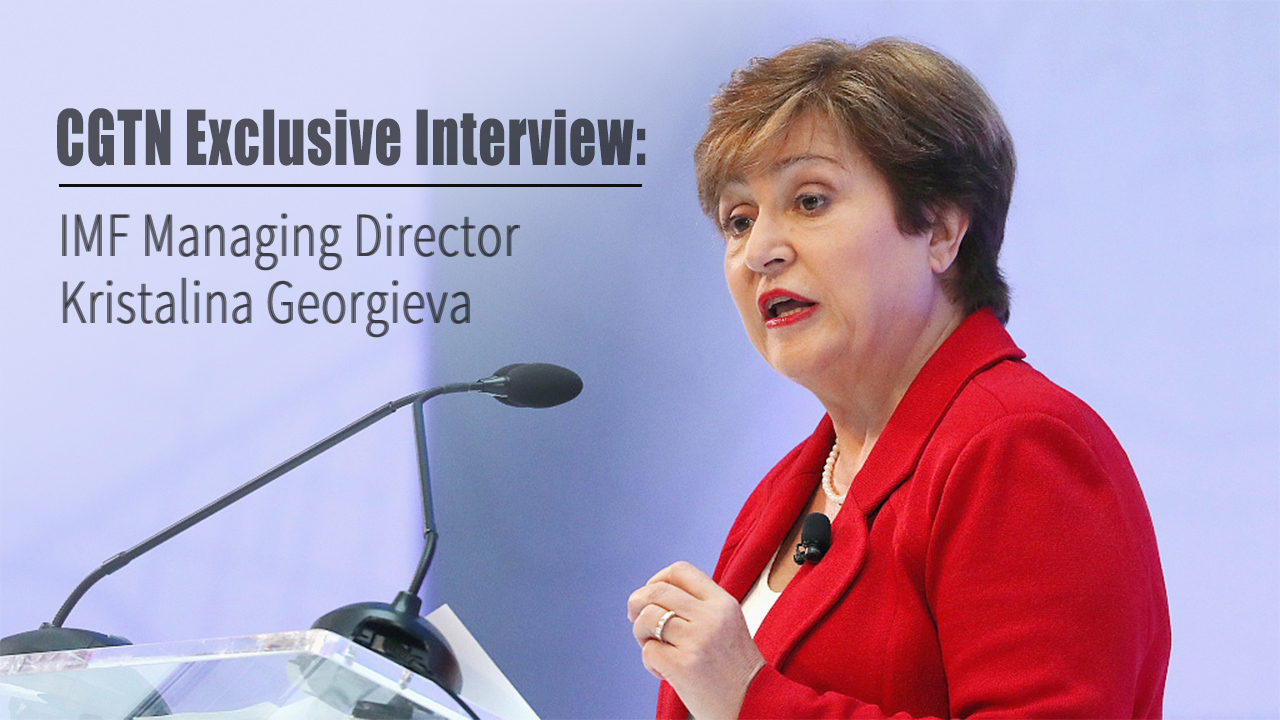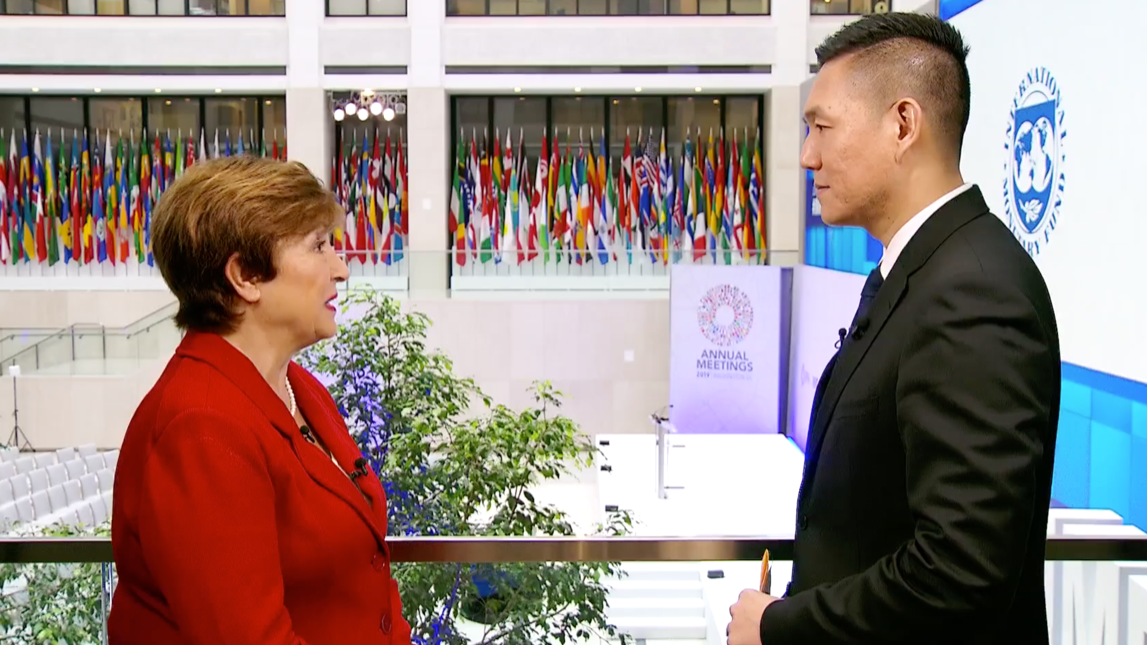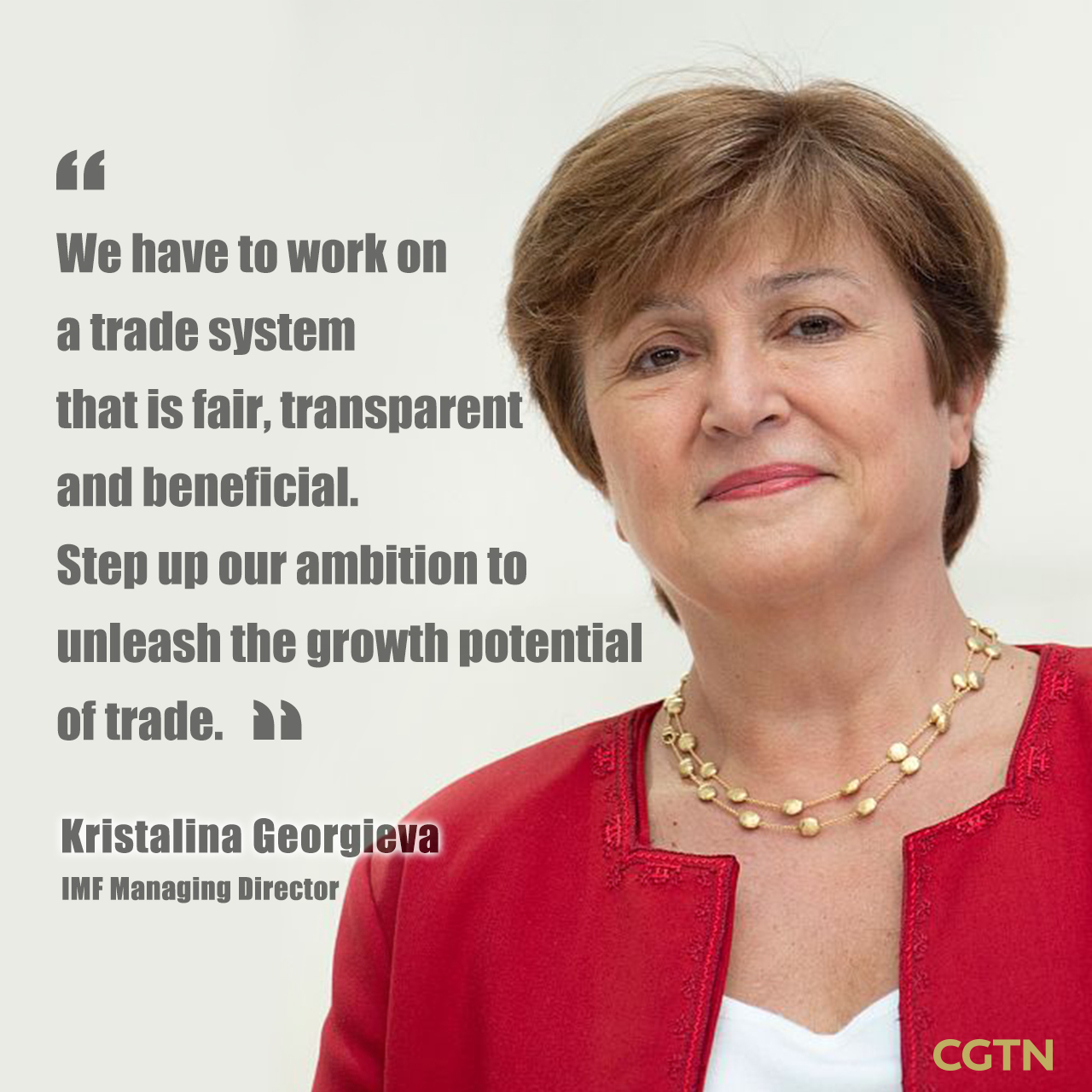The Annual Meeting of the World Bank Group and International Monetary Fund Boards of Governors took place for a week in October 2019. CGTN's Wang Guan caught up with IMF managing director Kristalina Georgieva about her duties regarding the protection of trade benefits.
Watch the complete interview here.
03:41

New International Monetary Fund (IMF) managing director Kristalina Georgieva has once again vowed to protect the benefits of trade and work on unleashing the full potential of growth, with her comments coinciding with the IMF lowering its global growth forecast for 2019 to three percent.
The IMF on Tuesday noted that its latest global growth forecast suggests the world economy is expanding at its slowest pace since the global financial crisis.
Georgieva sat down with CGTN's Wang Guan, offering her take on her role of the IMF, trade tensions, and multilateralism.
IMF chief's top priority
The 66-year-old former World Bank CEO stepped into the role as managing director of the IMF on October 1.
Bulgarian economist Georgieva is the first person from an emerging market to lead the fund since its inception in 1944.
Right now, she said her priority is to prepare for a slowdown in the global economy, and to make sure that the IMF provides support to countries that are vulnerable to changing global economic conditions.
"In the longer term, the role of the IMF is to help countries build strong economies to improve the lives of people on the foundation of sound economic policies," said Georgieva. "And we concentrate on working with authorities on monetary policies, fiscal policies and very importantly structural reforms to prepare for changing demands in the future."

The IMF Managing Director Kristalina Georgieva speaks to CGTN correspondent Wang Guan at IMF's headquarters in Washington, DC, U.S. /CGTN Photo
The IMF Managing Director Kristalina Georgieva speaks to CGTN correspondent Wang Guan at IMF's headquarters in Washington, DC, U.S. /CGTN Photo
Ties between IMF and world's second largest economy
Characterizing the relationship between the IMF and China over the past few years, Georgieva said both sides had learnt from each other.
"What we have seen is that China, very systematically, has been engaged multilaterally very much with the IMF," said the director.
She continued to explain that although China's economy is slowing down, "it is producing improvements in the well-being of its people."
"The IMF has been very much engaged to support China's monetary and fiscal policies and what we have seen are these gradual improvements in more openness, more flexibility of the RMB and its exchange rate, and [letting] it move according to markets."
"We are very much looking forward to continuing this very strong partnership with China in the years ahead," she added.
Global growth
"Today, the world is even more in sync," said Georgieva, answering a question about global growth. "But unfortunately, growth is decelerating. Ninety percent of the world is slowing for this year 2019 and very likely next year as well."
It means that there has to be more attention to national policies as well as coordinated action to protect the gains of economic growth, she stressed.
Trade tensions and multilateralism

Regarding ongoing global trade tensions, Georgieva called on the world to "protect the benefits of trade, because it is so valuable for growth, for jobs, for poverty reduction."
The IMF recently estimated that U.S.-China trade tensions will cumulatively reduce the level of global GDP by 0.8 percent by 2020, the equivalent of 700 billion U.S. dollars.
Read more: New IMF chief Georgieva: 'Everyone loses in a trade war'
"We have to work on a trade system that is fair, transparent and beneficial," said Georgieva, adding that the world needs to "step up our ambition to unleash the growth potential of trade."

Georgieva underlined her faith in multilateralism as the key component of the global trade system, and said people should live in peace and benefit from each other through trade. However, Georgieva conceded that not everyone has equally seen the "benefits of this multilateral engagement."
"People felt pushed out, left behind," said Georgieva. "So unless we fairly focus on those voices and why they are there, it would be hard to get full support for multilateralism."
She added that this is why the IMF has to work on gaining support from those people, and said we need to bravely speak out that "we are better off together."
"We are interconnected. It is a small world. We depend on each other."